WHAT WE’RE WATCHING
‘All of Us Strangers’ might just ruin you — but let its lessons in life sink in
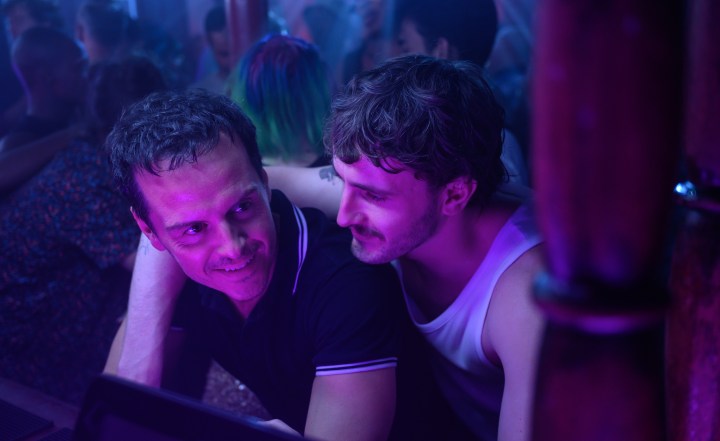
Two scintillating performances are at the heart of Andrew Haigh’s time-warp film, a tear-jerking meditation on loss, loneliness and self-alienation. The lovers played by Andrew Scott and Paul Mescal are destined to live on as one of cinema’s classic screen couples.
It’s an understatement to say that Andrew Scott will break your heart in Andrew Haigh’s All of Us Strangers. Seeing him and Paul Mescal together is one of those triumphs of screen chemistry. They are both brilliant actors, and possibly even better human beings. Watching them fall, quickly and deeply, into a relationship that feels simultaneously eternal and doomed, is devastating. Little wonder they’ve been raking in awards and nominations – for themselves and for the film.
Scott, the Irish actor who soared to popularity as the so-called “Hot Priest” in the groundbreaking comedy series Fleabag, plays Adam who, like Scott in real life, is gay.
He is also miserably unhappy.
And, going by the ennui of his first few minutes on screen, he’s deeply lonely, alienated, and suffering from writer’s block. Within moments of craning over his laptop to start work on his new screenplay, he is back on the sofa scoffing junk food, watching rubbish on TV.
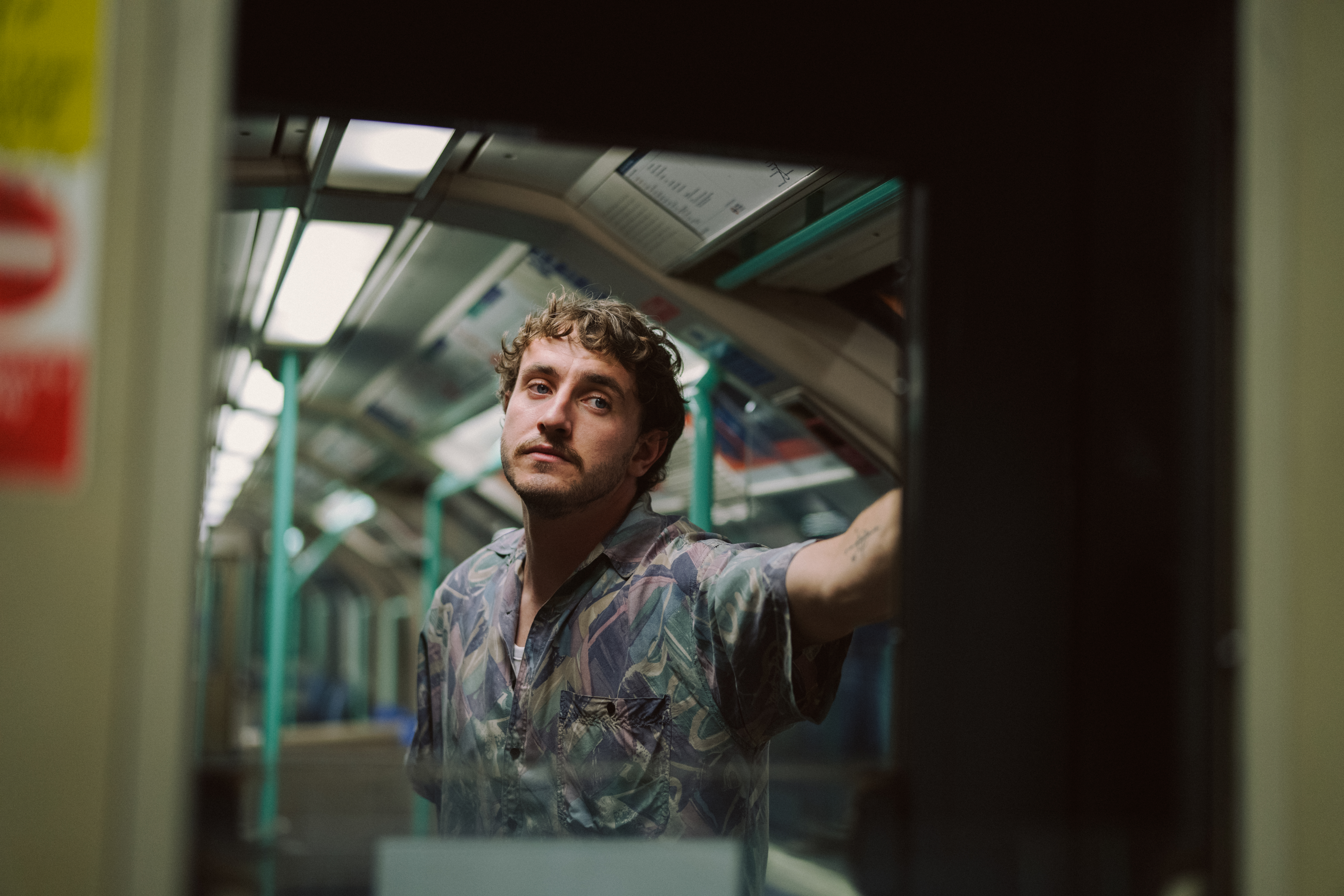
Paul Mescal in in ‘All of Us Strangers’. (Photo: Chris Harris / Searchlight Pictures)
That’s perhaps par for the course for many writers. But there’s a sense almost that Adam is entirely alone in the world, that whatever suffering he is experiencing has consumed him absolutely. He lives in a large but apparently near-vacant high-rise block in London and seems to have no connection with people whatsoever.
So, when a dishevelled, slightly drunk and definitely horny Harry (Mescal looking wonderfully unkempt and very keen) shows up at his door, you are already hoping that Adam will invite him in, respond to the straightforward offer of company – and probably much more. Instead, he shuts the door in the face of the younger man and you realise that Adam’s suffering has a kind of terminal quality. He is morbidly alone, incapable of giving in to that most human urge for companionship.
After all, who in his right mind would turn Paul Mescal away?
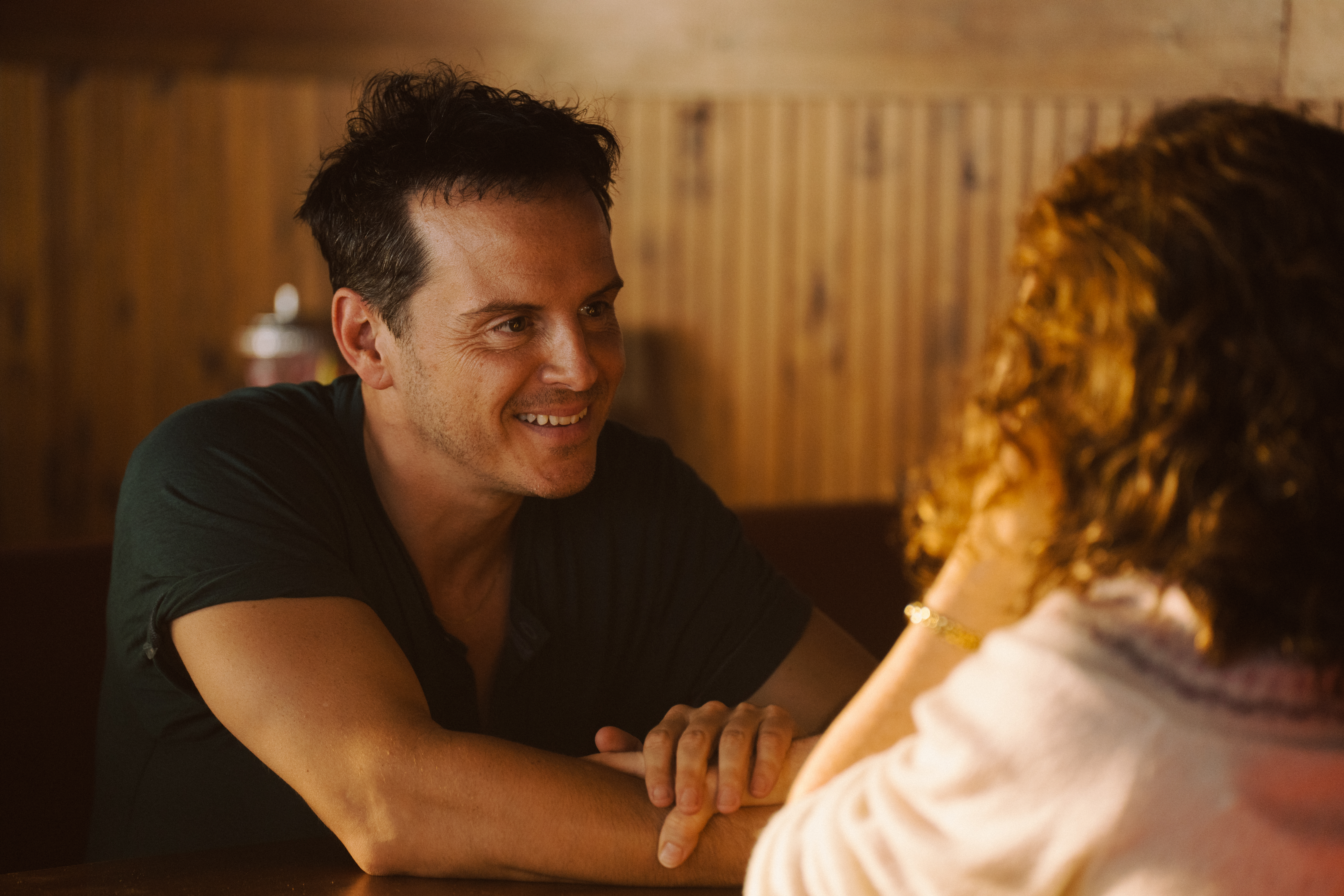
Andrew Scott in ‘All of Us Strangers’. (Photo: Chris Harris / Searchlight Pictures)
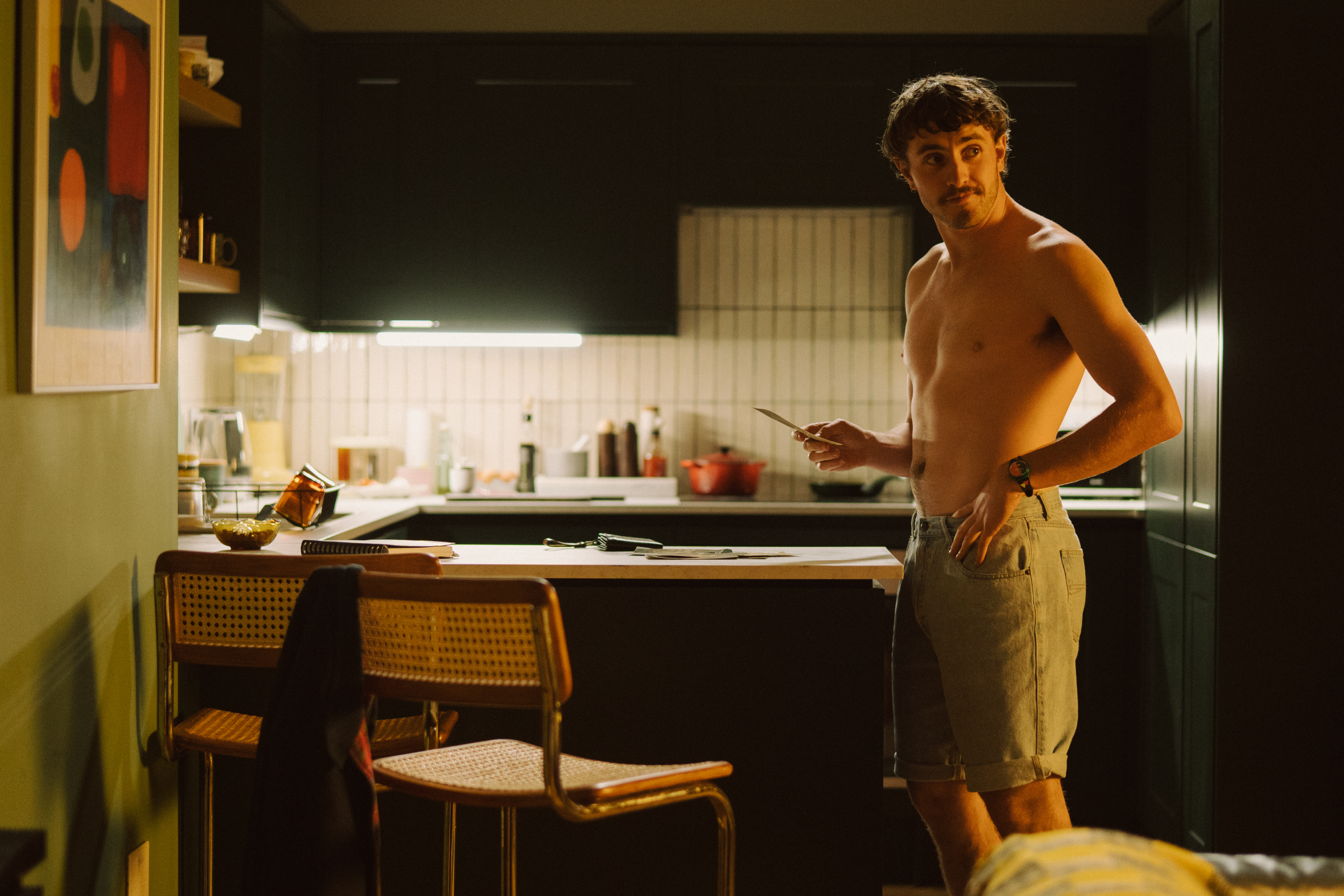
Paul Mescal in ‘All of Us Strangers.’ (Photo: Chris Harris / Searchlight Pictures)
It’s a good thing, then, that Harry is persistent. Otherwise we might never get to witness what turns out to be one of those truly great screen romances, full of passion and intimacy. The latter is deftly handled, the camera tenderly surveying the landscapes of the two lovers, skirting around genitalia, avoiding being too graphic while leaving little to the imagination. It’s the kind of sex, too, that really does propel the story along, and deepens our understanding of the two men and their experiences.
Before this hot romance kicks off, though, the film goes off on an alternate track. Quite literally. Adam sets off by train, you see, on a time-bending jaunt back to the suburban home of his childhood where he meets his parents (Claire Foy and Jamie Bell) precisely as they were 30 years ago, at about the time when they both died in a car accident.
It’s a wonky twist, this idea that we are able to see our protagonist hang out with the ghosts of his parents and spend meaningful moments interacting with them.
Or perhaps it’s not so strange, given that Adam is a writer and that the film he is struggling to start writing is about his parents and set in the 1987 of his childhood. However we choose to interpret what unfolds – dream, fantasy, maybe time travel – it pulls the rug from under us and at the same time enables us to go with what the film is ultimately offering us: slipstream entry into a realm of possibility, a chance to grapple with some of the many “what ifs” that haunt Adam, and perhaps haunt us all.
For Adam, it doesn’t really matter, though, if it’s real or imagined, because the effect it has on him – the feelings, the emotions, and Scott’s impeccably agonising tears – are all unspeakably real.
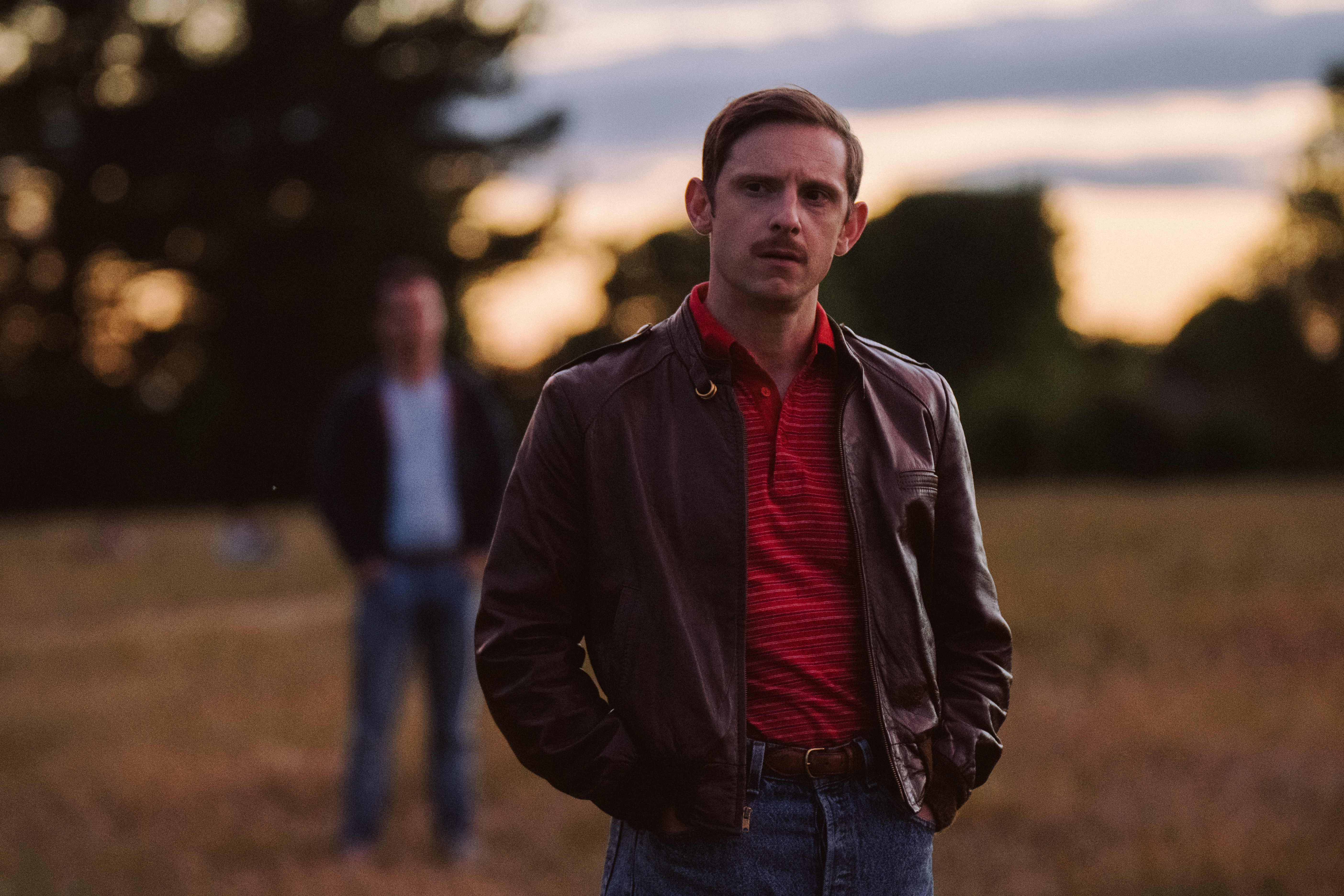
Jamie Bell in ‘All of Us Strangers.’ (Photo: Chris Harris / Searchlight Pictures)
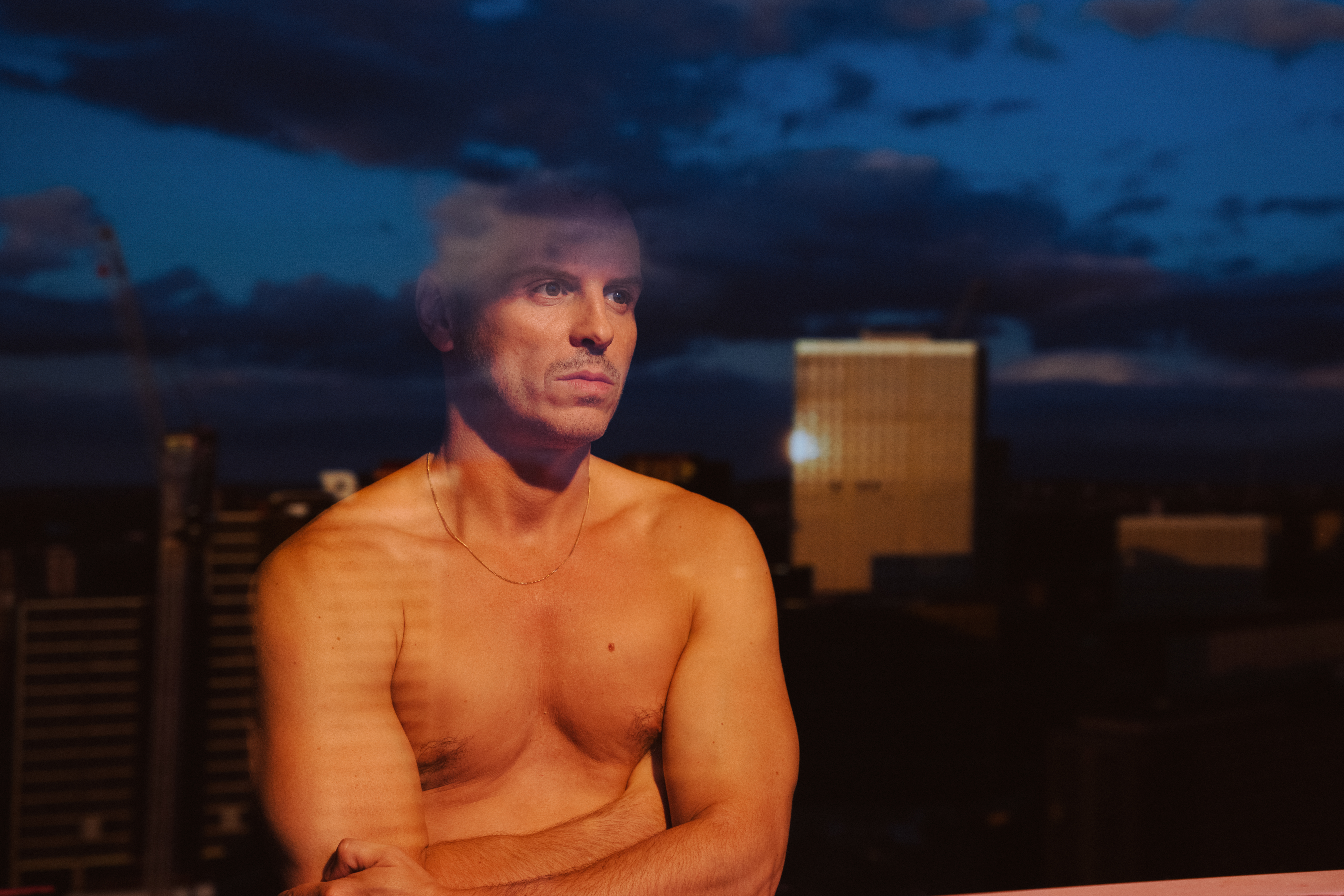
Andrew Scott in ‘All of Us Strangers.’ (Photo: Chris Harris / Searchlight Pictures)
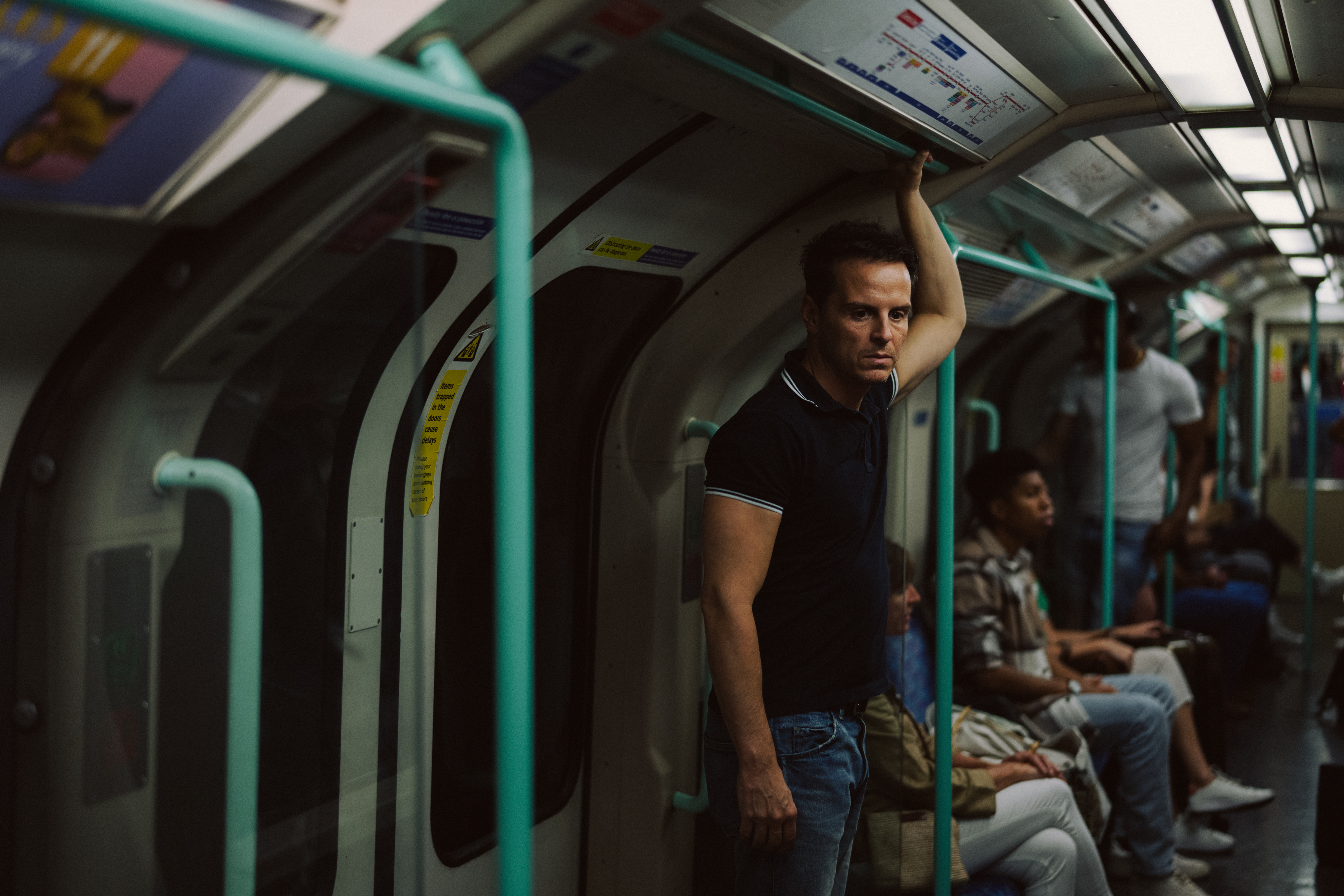
Andrew Scott in ‘All of Us Strangers.’ (Photo: Chris Harris / Searchlight Pictures)
And so, when he has the opportunity to tell his long-dead mother that he is gay, he grabs it, and then he observes how she might have reacted had he been able to come out to her while she was alive. In an unflinchingly tender, yet perfectly restrained scene, he grapples with her instinctual prejudices and cruel responses. Because, of course, she is still mired in a different era.
Adam must work through the perplexity and devastation of realising that there is such a vast part of who he is that will forever be unknown and unknowable to his long-departed parents. That he will always be a stranger to them.
Yet, while he seems to take on this burden of regret and pain on behalf of multitudes of gay people who have gone through life without being able to come out to their parents, you realise that actually his feelings are not limited to this question of sexual identity.
In fact, Scott’s portrayal of anguish is about something more universal: that the time we have with one another is limited, and that the secrets we keep locked up limit our access to a full life. It’s this sense of being a stranger to those around us that keeps us lonely, that alienates us not only from others, but also from ourselves.

Andrew Scott in ‘All of Us Strangers.’ (Photo: Chris Harris / Searchlight Pictures)
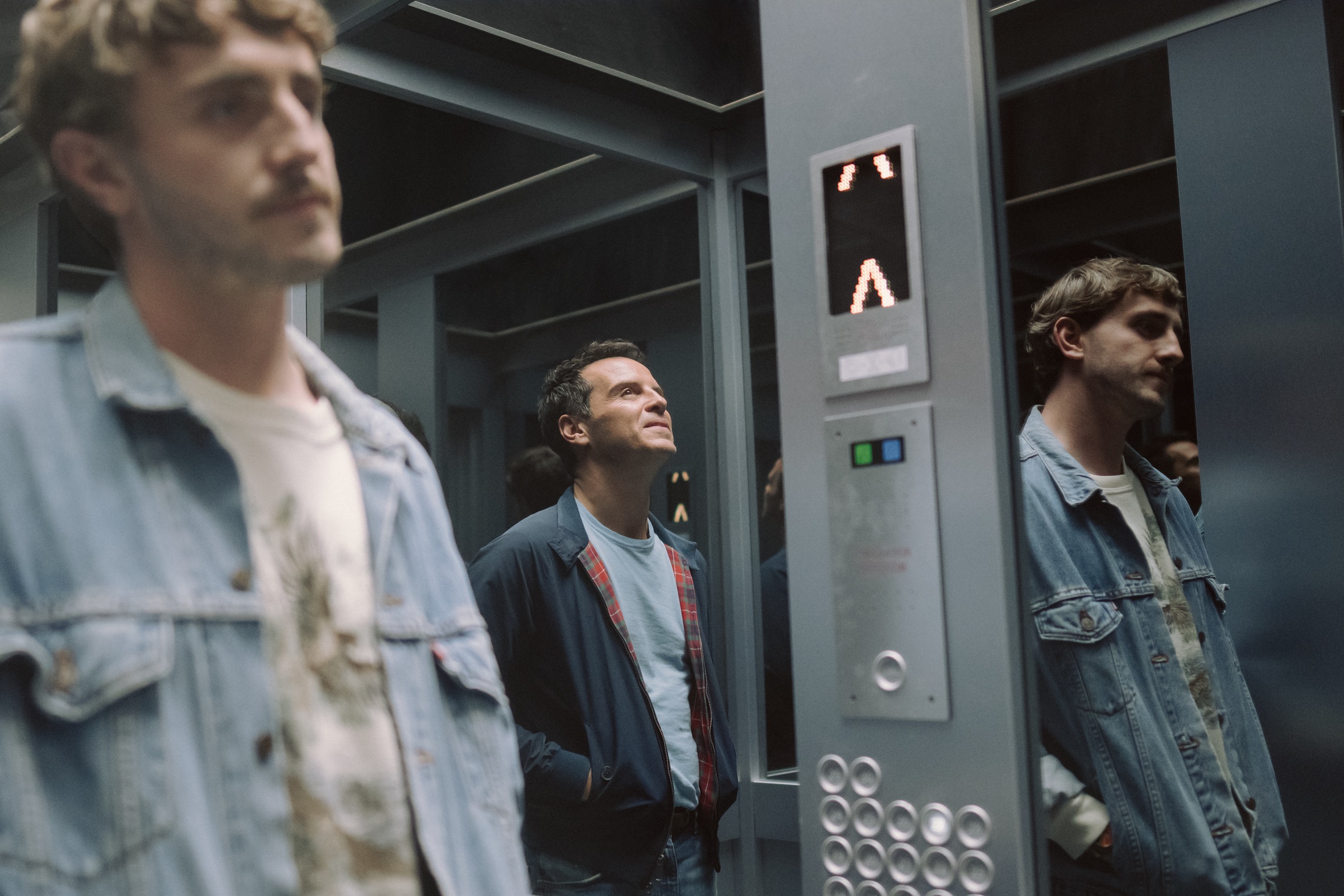
Paul Mescal and Andrew Scott in ‘All of Us Strangers.’ (Photo: Chris Harris / Searchlight Pictures)
While Haigh’s film is ultimately designed to break your heart, its construction cleverly works to keep you on your toes. It’s a bit of a mind-bender, purposefully complex and littered with irrational moments that every so often threaten to topple over into the realm of science-fiction – or horror.
It is, after all, about being haunted, whether by our memories or by our imaginations. And while his parents aren’t exactly spooky, there are just enough moments of visual terror to scare Adam out of his dreams, and to keep us wondering about how the intricate layering of intrigue adds up to a story we can ultimately make sense of.
When we do, though, the truth is gut-wrenching.
It’s a film that feels deeply personal, extremely intimate. Even in scenes that take us into the sweaty, frenzied environment of gay clubs with their exuberant half-naked dancing and throbbing crowds, you feel Adam’s isolation and desperate loneliness, and his inability to properly connect with the wider world. In one such sequence, his hazy, drug-addled state ushers in almost debilitating confusion, and that’s when Haigh has us right where he wants us: floating in a kind of dreamscape, a timeless, borderless limbo that is a pure cinematic rendering of Adam’s terrible alienation.
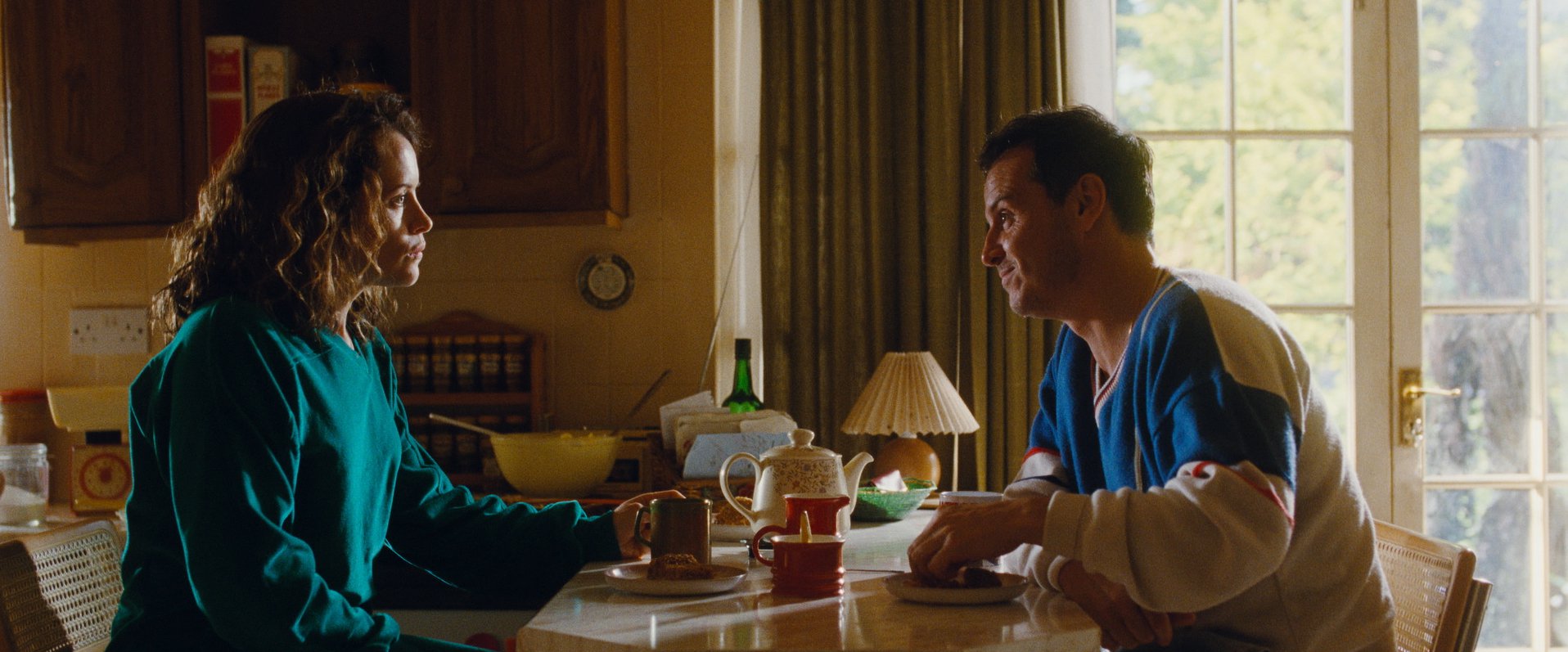
Andrew Scott coming out to his dead mother, played by Claire Foy, in a devastating scene in ‘All of Us Strangers.’ (Photo: Searchlight Pictures)
Whether or not Adam will be able to overcome his inner pain is uncertain, but I have a strong sense that this film will, for its viewers, help resolve some of the wounds that afflict all of us. Because, in the end, we are all strangers to one another, unable to ever fully know the complete inner world of those around us.
This film does a fine job of letting us know how it feels to be just one of those countless strangers we live among. It also reminds us that, in order to connect, you need to leave your apartment, let go of the past, and not only imagine the possibilities, but dive into the world. And live. DM
All of Us Strangers is in cinemas now.



















The camera work is done by South African DOP Jamie Ramsay